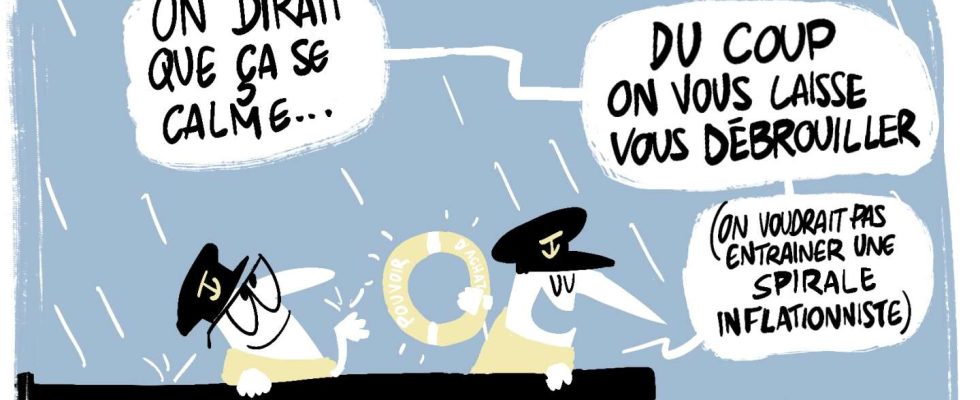At a time when the issue of salary increases now appears in each of the speeches of the President of the Republic and the Prime Minister, provisional data published, Friday February 9, by the Directorate of Research Animation, Studies and Statistics of the Ministry of Labor, show that they increased slightly more than inflation in the fourth quarter of 2023. This is only the second time that this has happened since the surge in inflation in 2021.
The basic monthly salary of all French people (gross salary, excluding bonuses or overtime) thus increased by 0.3% on average during the quarter, an increase of 3.8% over one year. Over the same period, the basic hourly wage of workers and employees increased by 0.4%, or +4.1% over one year.
The consumer price index having increased by 3.6% year-on-year in December 2023, these figures reveal a tiny increase in purchasing power. Good news that must however be qualified. First, recalling that between December 2022 and December 2023, the INSEE food price index alone increased by 7.2%.
Then, observing the trend highlighted by the study published on Friday February 2, by the Studies & Data center of the Alpha-Secafi group. This firm analyzed 421 salary agreements concluded for the year 2024 as part of mandatory annual negotiations. That is to say all of the agreements available on the Légifrance website as of January 10 which mentioned increases.
General increases are declining
What do they reveal about the 2024 salary policy? Which is “marked by the decline in increase budgets, the decline in recourse to general increases and the poverty of peripheral measures”, summarizes the entry study.
The envelopes devoted to salaries for 2024 (+3.5% on average) are thus down sharply compared to 2023 (+4.6%). It must be said that the context has changed: inflation is slowing (but continues to rise), growth forecasts are gloomy, business failures are on the rise and recruitment pressures are easing.
Companies that were slow to adapt their budgetary practices to the extraordinary economic context of recent years, effectively passing the cost of inflation onto employees, are quicker to anticipate an end to this crisis. “All the measures to support purchasing power put in place in a context of exceptional inflation are running out of steam. For businesses, this no longer seems to be a subject “, notes Alice Rustique, research manager at the Alpha Group’s studies and forecasting division.
You have 50% of this article left to read. The rest is reserved for subscribers.

